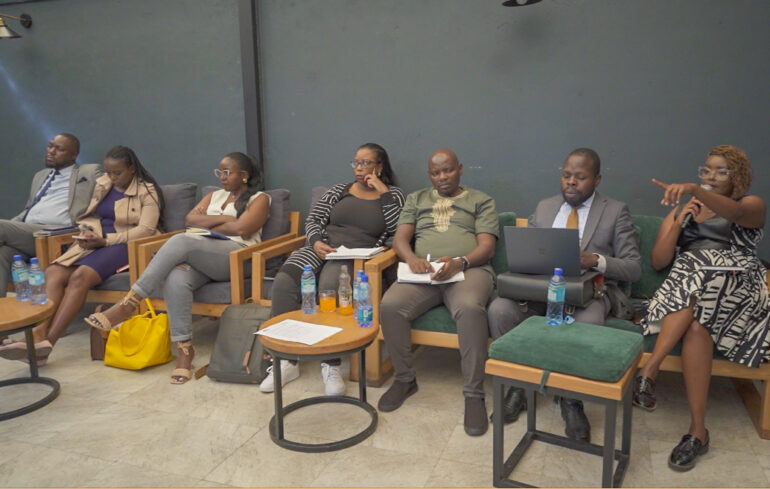On January 16, 2025, we convened a stakeholders’ meeting at the Mageuzi Hub to discuss the future of digital rights in Kenya. The event brought together representatives from civil society organizations (CSOs), media professionals, content creators, legal experts, and other key stakeholders to assess the current landscape of digital rights, identify pressing challenges, and chart a strategic way forward.
The Digital Rights Landscape in Kenya
In less than a year, Kenya has witnessed significant threats to digital freedoms, including an internet shutdown, the restriction of Telegram for weeks, and the abduction of content creators for expressing themselves online. These events have underscored the urgent need for a coordinated response from various stakeholders to safeguard online freedoms and ensure that Kenya remains a space where digital rights are upheld.
Key Discussions and Insights
Participants emphasized the importance of identifying and engaging both local and international players in digital rights advocacy.
Discussions explored how different stakeholders, including governments, civil society organizations, and tech industry leaders, can work together to regulate online content while addressing the emerging challenges posed by artificial intelligence (AI). The growing concerns around cybersecurity were also a major focus, with experts proposing strategies to strengthen digital security and mitigate online threats. Additionally, the role of internet governance in shaping digital policies was examined, highlighting the need for inclusive decision-making processes that involve all stakeholders.
Legal advocacy was another critical topic, with participants stressing that while a robust legal framework is essential for protecting digital rights, legal action alone is not enough. The discussions underscored the need for policies that explicitly safeguard online freedoms and prevent government overreach. Attendees also emphasized the importance of challenging restrictive laws, such as excessive surveillance regulations and arbitrary platform restrictions. Beyond litigation, alternative dispute resolution mechanisms and direct engagement with policymakers were recommended as effective ways to address digital rights issues outside the courts.
There was a strong call for public education campaigns to raise awareness of digital rights and digital security training to help individuals and organizations protect their online privacy. Expanding digital literacy programs in marginalized communities was also identified as a crucial step toward bridging the digital divide and fostering greater online participation.
Key Recommendations
A fragmented approach weakens the overall impact of digital rights advocacy, and participants called for stronger collaboration among CSOs, journalists, technology experts, and policymakers. Strengthening networks at the local, national, and international levels would enhance the ability to address digital rights violations effectively. Increased collaboration with global human rights organizations was also recommended as a way to expose violations and seek broader support. Additionally, mass awareness campaigns were highlighted as an essential tool for emphasizing the importance of digital rights and mobilizing public engagement.
To counter digital repression, stakeholders explored innovative technological solutions. Decentralized technologies, such as blockchain, were proposed as a means of enhancing privacy and reducing reliance on government-controlled platforms. Backup plans for internet access, including the establishment of community networks and the use of satellite-based solutions, were also discussed as potential safeguards against internet shutdowns and restrictions.
For sustainable digital rights advocacy, participants emphasized the importance of building long-term strategies. Strengthening partnerships across East Africa was identified as a way to counter digital repression at a regional level.
Diversifying support mechanisms beyond traditional legal approaches was also suggested, ensuring that advocacy efforts remain resilient and adaptable to changing digital landscapes.
Furthermore, investing in institutional capacity-building programs was recognized as essential for equipping organizations with the skills and resources necessary to navigate digital rights challenges effectively.
